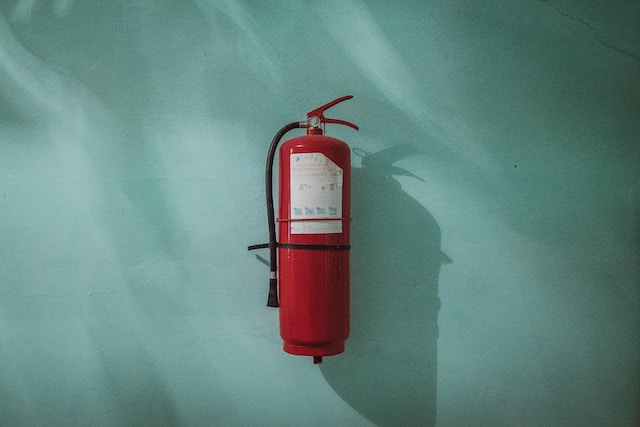How to Choose the Right Extinguisher for your Business?

Fire extinguishers are crucial for saving lives and property during small fires until firefighters arrive. It is vital for business owners and industries to have fire extinguishers as fundamental safety devices. Choosing the right fire extinguisher for your business and understanding its correct usage can prevent property damage and save lives during commercial and institutional cooking fires. Essential safety tips include regular fire inspections, proper storage, creating a fire evacuation plan, and scheduling regular inspections and servicing. Business owners must be knowledgeable about these safety measures to protect their loved ones and property. This article provides valuable fire extinguisher safety tips for preventing and preparing for fire emergencies.
Understand the Types of Fire Extinguishers:
To make an informed decision, it is important to familiarize yourself with the different types of fire extinguishers available. The most common types include:
- Class A: Suitable for fires involving ordinary combustible materials such as wood, paper, and cloth.
- Class B: Designed for flammable liquids like gasoline, oil, and grease.
- Class C: Ideal for fires caused by electrical equipment, including wiring, appliances, and circuit breakers.
- Class D: Specifically created for fires involving flammable metals.
- Class K: Essential for commercial cooking fires that involve oils and fats commonly found in kitchens.
Assess Your Fire Risks:
Evaluate the unique fire risks associated with your business. If you operate a commercial kitchen, the risk of a commercial cooking fire may be higher. On the other hand, institutional settings such as hospitals, schools, or nursing homes may have a greater risk of an institutional cooking fire. By identifying the specific hazards, you can prioritize the types of fire extinguishers required for your establishment.
Consider Size and Placement:
The size and placement of fire extinguishers are vital for quick access during emergencies. Ensure that the extinguishers are strategically located throughout your premises, keeping in mind the specific fire risks associated with each area. For instance, kitchens should have Class K extinguishers positioned near cooking equipment. Consider the size and weight of the extinguishers, ensuring they are manageable for your employees.
Check for Regulatory Compliance:
Complying with fire safety regulations is crucial for businesses. Familiarize yourself with local fire codes and regulations to ensure that the extinguishers you choose meet the required standards. Verify if there are any specific requirements for commercial cooking fires or institutional cooking fires that you need to adhere to.
Seek Professional Guidance:
When in doubt, it’s always wise to consult with fire safety professionals or experts. They can assess your business premises, analyze your fire risks, and recommend the most suitable fire extinguishers for your specific needs. These professionals can provide invaluable guidance and ensure that your fire safety measures are up to par.
Evaluate the Fire Extinguisher Rating: Each fire extinguisher has a rating that indicates its effectiveness in combating specific types and sizes of fires. The rating consists of a number and a letter. The number represents the extinguisher’s effectiveness, while the letter corresponds to the class of fire it is suitable for.
Assess Fire Extinguisher Maintenance: Regular maintenance of fire extinguishers is crucial to their functionality. Ensure that the extinguishers you choose are easy to maintain and service. Check if they require periodic inspections, pressure testing, or refilling. It is important to have a proper maintenance schedule in place to keep your extinguishers in optimal working condition.
Consider Supplementary Fire Safety Equipment: While fire extinguishers are a critical component of fire safety, they may not be sufficient in all cases. Depending on your business’s size and nature, you might need additional fire safety equipment such as fire blankets, automatic fire suppression systems, or fire alarms. Evaluate your specific needs and consider investing in supplementary equipment to enhance your overall fire safety measures.
Review Insurance Requirements: Insurance policies often have specific requirements regarding fire safety equipment. Before making a final decision, review your insurance policy to ensure that the fire extinguishers you choose meet the stipulated criteria. Compliance with insurance requirements not only protects your business but also ensures you receive adequate coverage in case of a fire-related incident.
FireMaster provides an extensive range of portable and wheeled fire extinguishers, along with exceptional service for fire inspection, maintenance, recharge, and sales tailored to your requirements. Our technicians deliver comprehensive maintenance and service that surpass industry standards, guaranteeing the reliable performance of your handheld fire extinguishers in commercial and institutional cooking fire emergencies. Get in touch with us today to discover more about our fire protection products and solutions!
